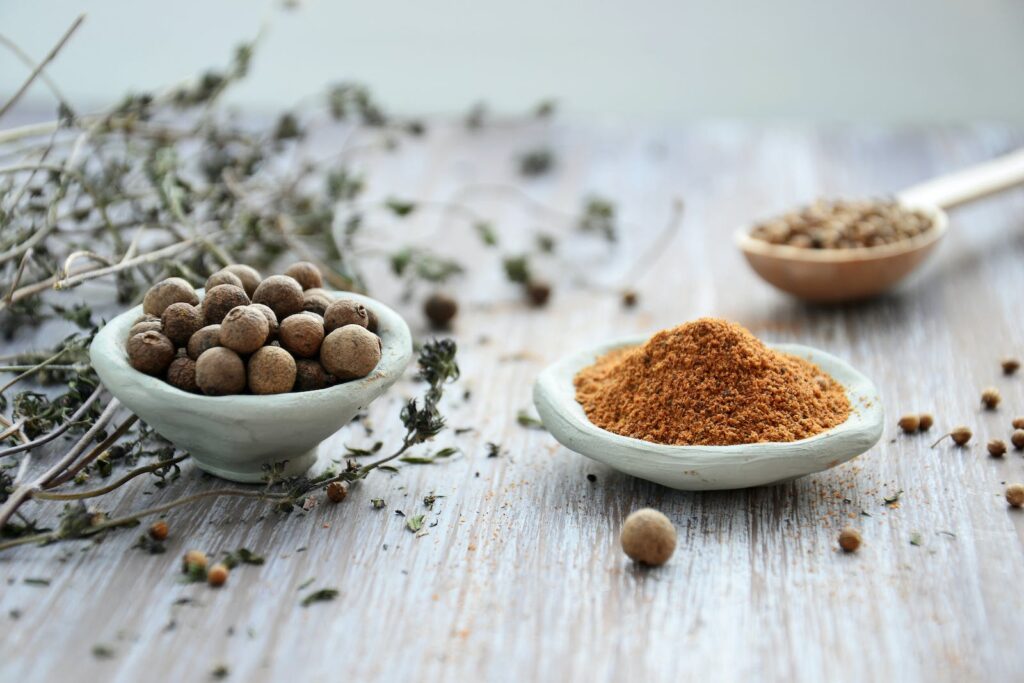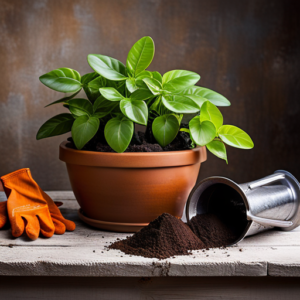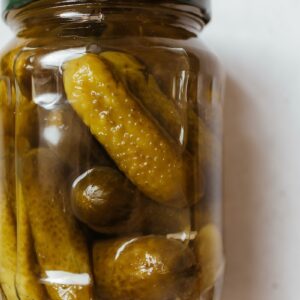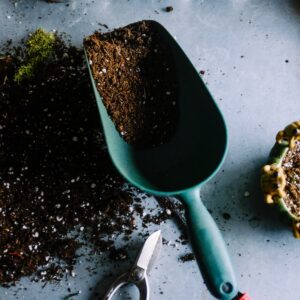Are you peeking into your spice cabinet and wondering if those old jars are just clutter? You’re not alone! Many of us have spices that have been sitting around for ages, and it’s tough to know what to do with them.
Thankfully, there’s good news: while these spices might not add much zing to your meals anymore, they still have plenty of life left in other surprising ways.
Here’s a little-known fact: even when their flavor has faded, old spices can work magic outside the kitchen! In this blog post, we’ll uncover how you can give those seemingly useless seasonings a new purpose in your garden and home.

Discover creative tips that will refresh your living space and even help out Mother Nature. Keep reading; those neglected herbs and spices are about to become unexpectedly valuable treasures in your hands.
Key Takeaways
- Old spices can be used to make potpourri, freshen carpets, and repel insects.
- Store your spices in a cool, dark place in airtight containers to keep them fresh longer.
- Check for spoilage before reusing spices and do not use them if they are moldy or smell bad.
- You can mix old spices with wax to create DIY fire starters that are eco-friendly.
- Ground cinnamon, cloves, and ginger from old spices can add texture and scent to homemade soaps.
Factors Determining Reusability of Old Spices
The quality and storage conditions of the spice, as well as the type of spice or herb and its age, are all factors that determine whether old spices can be reused. These factors will help you decide how to repurpose your expired spices creatively.
Quality and Storage Conditions
Good storage keeps spices fresh longer. Keep them away from light, heat, and moisture to stop flavor loss. Use airtight containers for your old spices. Put these jars in a cool, dark spot like a pantry or cupboard.
This helps prevent oxidation that can dull taste and aroma over time.
Moisture is bad for spice quality. It leads to clumping and can cause mold. Always use dry spoons when measuring out your spices to keep them in good shape. Check the freshness by smelling and looking at your spices before using them again.
If they smell strong and look bright, they might still be okay!
Type of Spice or Herb
Cinnamon, cloves, and bay leaves serve more than one purpose. You can turn these aromatic spices into craft supplies or use them to keep pests away from your garden. They add a pleasant smell to any room and work as natural pest control.
Hard spices like cinnamon sticks and cloves make great potpourri ingredients. Their strong scent lasts for weeks, making them perfect for homemade air fresheners. These seasonings bring new life to old crafts, giving everything a fragrant twist.
Age of the Spice
Old spices may not be as strong or tasty as new ones. Over time, they can lose their punch. Ground spices don’t last as long as whole ones. Still, you might use them in other ways instead of cooking.
Check the age before you reuse old spices in your garden or home projects. Spices that have sat on a shelf for years without proper storage might not work well. Make sure they still smell strong and haven’t gone off before using them for something new!
Creative Ideas for Reusing Old Spices
– One creative way to reuse old spices is by making homemade potpourri, adding a natural fragrance to your home.
– Another idea is to use old spices to freshen up carpets or repel insects, providing a natural and cost-effective solution for household issues.
Making Potpourri
Use your old aromatic spices and dried herbs to craft homemade potpourri, adding a delightful fragrance to your living space. Combine them with dried flowers or citrus peels for creating natural air fresheners, promoting sustainability and reducing waste.
Embrace upcycling by incorporating these simple yet effective ideas into your DIY projects for an eco-friendly touch to your home and garden.
Freshening Up Carpets
Create an eco-friendly carpet freshener by combining ground spices and baking soda. Sprinkle the mixture onto your carpets, let it sit for a few hours, then vacuum it up to enjoy a natural and aromatic carpet refresh.
This DIY method not only keeps your home smelling fresh but also repurposes old spices in an innovative and practical way. Give your carpets a new lease on life with this simple yet effective approach to recycling spices for home use.
Repelling Insects
Old spices can be powerful insect repellers. For instance, cinnamon, cloves, and cayenne pepper work effectively to keep ants, spiders, and other bugs at bay. Citronella can also be made using old spices and is a natural ingredient in mosquito repellents.
This eco-friendly approach not only wards off pests but also saves on costs compared to chemical alternatives.
Aromatherapy isn’t just for relaxation; it’s also effective for pest control. Consider using homemade citronella or a combination of old spices in sachets around the house to deter insects naturally.
Enhancing Homemade Soap
Enhance your homemade soap with a touch of sustainability by repurposing old spices in your skincare routine. Ground up cinnamon, cloves, and ginger can bring exfoliating benefits, adding texture and fragrance to your soap.
These natural ingredients not only infuse aromatherapy into your cleansing routine but also contribute to eco-friendly alternatives. Infuse them into oil for a delightful fragrance infusion as you indulge in the art of DIY soap making.
Creating DIY Fire Starters
Transitioning from enhancing homemade soap to creating DIY fire starters, repurpose your old spices to spruce up your home and garden. Mix cinnamon, cloves, or nutmeg with wax for aromatic and eco-friendly fire starters.
Use these sustainable solutions to add a touch of creativity while being kind to the environment.
Dos and Don’ts of Reusing Old Spices
Do check for signs of spoilage and store spices properly. Don’t use spoiled or moldy spices, and avoid using old spices for cooking.
Do check for signs of spoilage
Check for signs of spoilage in old spices such as changes in color, aroma, or texture. These changes indicate that the spices may have gone bad and should not be reused. Properly stored spices can last longer, but it’s crucial to monitor their freshness regularly.
Recognizing signs of spoiled spices can help you avoid potential health risks and ensure the effectiveness of the spice when repurposed. Keep an eye out for any unusual alterations and discard any suspicious-looking or smelling spices to maintain a safe environment at home.
Do store spices properly
To ensure the quality and potency of your spices, it’s vital to store them properly. Keep spices in airtight containers away from light, heat, and moisture to preserve their freshness.
Ground spices tend to lose flavor faster than whole spices, so consider using them within 6 months to a year for optimal taste. Proper storage methods can help extend the shelf life of your spices and prevent degradation, maximizing their flavor and potency over time.
For longer-lasting spice freshness, proper storage is key. Store your herbs and spices in airtight containers away from light, heat, and moisture. This will help to avoid spice spoilage while preserving their flavor for extended periods.
Don’t use spoiled or moldy spices
Check the expiration date before using spices to avoid any that are past their prime. Using spoiled or moldy spices can be harmful to your health, so always discard them. Stay safe and healthy by ensuring you only use fresh and uncontaminated herbs and seasonings in your DIY projects or home improvement endeavors.
Don’t use old spices for cooking
Using old spices for cooking is not recommended as they lose their potency and flavor over time. The expiration date, appearance, and aroma of the spice should be checked before use.
Old spices may not provide the desired flavor and aroma in dishes due to their reduced freshness. Therefore, it’s crucial to prioritize using fresh spices when cooking to ensure the best culinary experience.
Conclusion
In conclusion, old spices can be repurposed for creative projects and natural solutions. These practical tips are easy to implement and efficient in enhancing your garden and home.
Reusing old spices not only reduces waste but also offers natural remedies with significant impact. You can explore further resources to maximize the use of expired spices creatively.
Let’s embrace the potential of reusing old spices and make a positive difference today!









